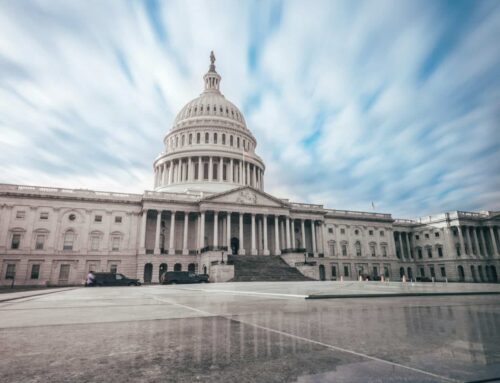Fueled by unprecedented political scandals, both political parties in both the House and Senate have ushered in the year with a debate over lobbying reform. American’s cynicism regarding Congress in general has reached new highs. Clearly, Congress must make systemic changes to help restore the public’s trust and assure the American people that their elected representatives are here in Washington, DC to represent them and the best interests of the country, not campaign contributors and cronies. If done correctly, lobbying and legislative reforms can help eliminate the culture of waste and pork barreling in Congress.
Lobby disclosure rules must be tightened and enforced, gift rules strengthened, the revolving door slowed, and pay-to-play ended. For many lobbyists, it seems the disclosure forms are little more than an inconvenience. Virtually no information about actual lobbying activities–the particular issue, amendment, or legislation in question; the members contacted; or the lobbying tactics employed–is ever provided. Rules against lobbying former colleagues are routinely skirted, so these rules need to be made tougher and enforcement taken more seriously. Two immediate solutions are to broaden the definition of “former colleagues” and lengthen the amount of time former members are banned from lobbying.
TCS does support tougher rules regarding gifts from lobbyists, but we don’t agree with the ban on privately funded travel for educational trips. There are significant benefits of an educated Congress, and we are concerned that if proposed bans are enacted, taxpayers will be forced to foot the bill for these trips in the future. Increased documentation and disclosure of and limitations on these trips will likely make them less subject to abuse. The details of every educational trip a member takes should be publicly available through a system of real-time, transparent, and accessible disclosure. The source, extent, and full costs of the trips should be documented, and members should pay for spousal travel out of their own pockets and certify that the trips meet all congressional guidelines.
The most effective reform, however, will get at the product of all of this lobbying–legislation and earmarks. To simply address lobbying activities ignores the goal of the lobbying: affecting legislation and directing federal dollars toward parochial interests. To help stymie this pay to play system, Congress needs to start by regaining control over earmarking.
What’s the problem with earmarks? Here’s a good example. A recent investigation by the Inland Valley Daily Bulletin found that a local member of Congress, Rep. Gary Miller (R-CA), financially benefited from $1.28 million in earmarked federal funds for street improvements. As a member of the key congressional committee that drafted the recently passed transportation bill bill, Rep. Miller was well positioned to obtain this earmark.
Rep. Miller and a top campaign contributor teamed up to finance a 70-acre Diamond Bar Village development. The earmarked street improvement funds are for right in front of the planned housing/retail center he co-ows. With out a doubt the improvements increase the value of Rep. Miller’s investment, which will feature a Target store, 70 single-family homes, 110 condominiums, and two restaurants.
To attack this earmarking phenomenon, we must use both indirect and direct means. There should be increased transparency and oversight, and Congress should adopt structural solutions to cut the number of earmarks in future years.
The congress should set the maximum number of allowable earmarks (administration and congressional) at no greater than 50 percent of the previous year's levels for the next 5 years and the name of the requesting member of Congress available for each earmark in the legislation. All the earmark request letters available online at the Committee on Appropriations web site. This will give us a better sense of what lawmakers are asking for what money.
These are a just a few of the steps the Congress can take to end the special interest chokehold on democracy in Washington. It will allow Americans to see more into what lawmakers are giving to contributors as the paybacks for the golfing trips, gifts, and other special favors.










